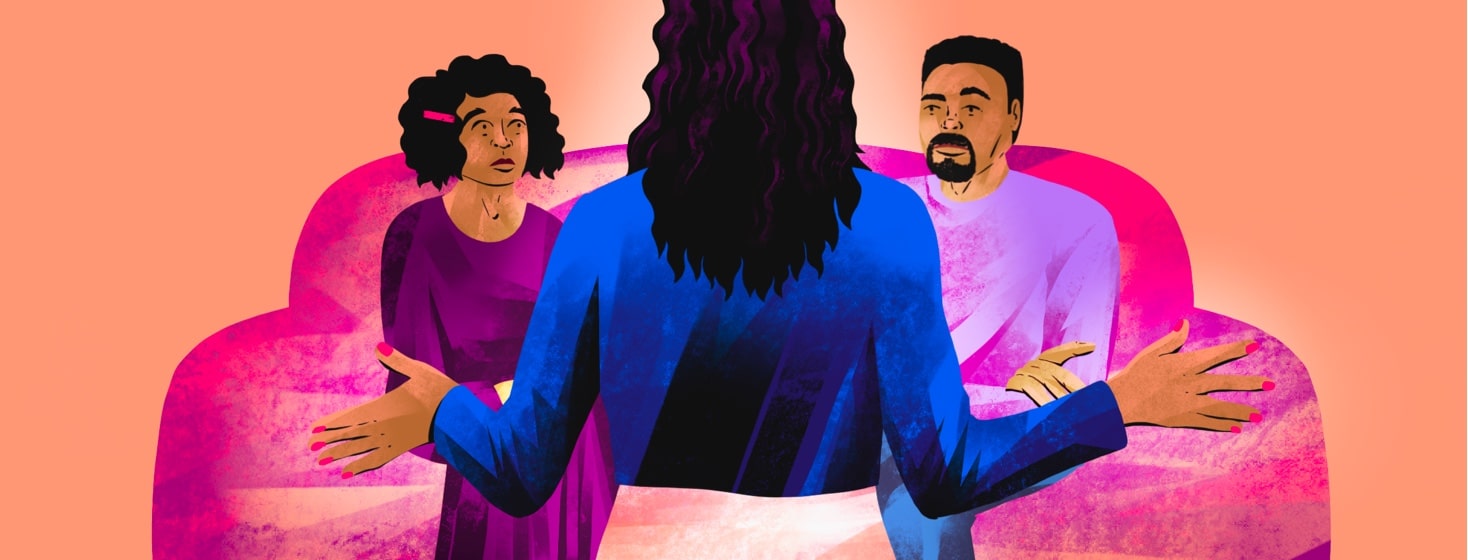How to Ask for Help With PPD
There is a common saying about raising children: "It takes a village."
The concept itself sounds wonderful. It's collaboration, cooperation, and support from family and friends who can help the new mom (parents) in raising their child. The concept, however, does not come with a manual or rules on how you go about getting said village to help you.
The proximity of our loved ones
There is also something to be said about where this village is.
When my mom was raising my brother and me, at the beginning, both of my grandmothers, her sister, and other family lived nearby. Nowadays, many people don't have the luxury to live close to family and it takes effort to bring the village to you. People have to take off work, arrange schedules, and travel. It's quite different.
Asking for help during postpartum depression
I was thankful enough to have my parents and in-laws help when both of the boys were born but they too had to get back to their lives and their jobs. Before my first son was born, I was convinced my mom had to move in with me for the first 3 months to help me. After a few weeks, I realized I could handle taking care of my baby.
For me, I didn't need help taking care of my baby, I needed help with everything else in life that still needed to be done.
Although I knew that's what I needed help with the most, I had a hard time articulating how to ask for help. I blame postpartum depression, hormones, and exhaustion.
It can be hard to say what we need
It also dawned on me that even those who have been new mothers or have helped them think they know what we may need. Sometimes that can be even more unhelpful. The number of times I heard "you have to let people help you" is still triggering for me. What they should have said: "Tell me how I can help you and your needs."
If I could do it all again here are a few things I'd do differently when asking for help.
How to ask for help with postpartum depression
1. Identify what you need.
Laundry, dishes, washing bottles, making meals, you name it. I had a hard time asking because I felt bad asking others to help me with those super tedious tasks. The village is about collaboration. If they want to help you, they will do what you ask them. If someone offers to do a meal train for you and your family, take them up on it!
2. Identify when you need people.
After my second spent a week in the NICU, it wasn't until I got home that I got to hold him for long periods of time. After breastfeeding him, there were a few times that my baby was taken away from me – to be burped and so I could rest. I ended up feeling like a milkmaid.
It was so hard to express the need to hold my baby that I ended up exploding on my village trying to help me. I'll let you guess who was wrong there. It's okay to ask people to come and to go when you are ready.
3. Be open and honest.
The past few years have been the hardest years of my life. I let a lot of societal pressures and "tradition" guide my decisions to take care of myself and my family. Set boundaries that make you comfortable with your village.
It may be one uncomfortable moment or conversation to set them, but it will save you from having many, many uncomfortable moments or conversations over and over. You get to decide how people help you.
This or That
When something is bothering you, what do you tend to do?
Paying it forward
The past couple of months I have had an opportunity to reflect on my experience with PPD. It's real, it's valid, and it's vulnerable.
If you are going through it right now, know that one day you will be able to help someone else who is going through it. If you ever feel bad about asking for help, or setting boundaries with your village, take solace in the fact that one day, you will be able to pay it forward and be an essential part of someone's village.
Writer's note: I have so much gratitude for my village. Thank you for your patience and unconditional love.
